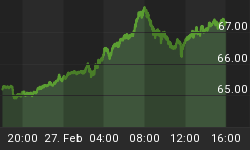The following is part of Pivotal Events that was published for our subscribers June 16, 2011.
Anyone selling shares today has to be pricing in a recession
SIGNS OF THE TIMES:
"IPOs Boost Demand for Silicon Valley Mansions"
- Bloomberg, June 15, 2011
"Six-week losing streak is the longest since October 2002."
- MSNBC, June 10, 2011
The article included that there was a 7-week decline in May 2001 with the first break in the Dot-Com mania.
Also included was "Anyone selling shares today has to be pricing in a recession."
That was from the CIO at Harris Private Bank, and we have expected that the recession would start in May.
"The central irony of a financial crisis is that while it is caused by too much confidence, borrowing and lending, and spending, it is only resolved by borrowing and lending and spending."
- Financial Times, June 13, 2011
This was former Treasury Secretary Larry Summers applying textbook stuff to the reality of a typical post-bubble contraction. The big paradox has been that the original textbooks were not based upon financial reality. Weird, but interventionist economists have virtually wagered the world's taxpayers' money on spurious notions about managing crises.
The Greek disaster could be the one that demonstrates - finally - that their theories and abilities have magnified the problem. The world is rejecting these notions - again. Eventually it will be dramatic, perhaps equivalent to the 1989 discovery that global Communism was a socio-economic failure.
Interventionist economics is slowly being relegated to the "dustbin of history". Perhaps this year will hasten the process.
* * * * *
Perspective
This week's focus is the stock market and our old observation that episodes of forced liquidation come out of an oversold condition. Yesterday's ChartWorks suggested that if this test of the low does not hold a serious decline would follow.
In the meantime, our target of the March low has been 1250 on the S&P. This and the Nasdaq are getting close. Will the test hold?
Tuesday's relief bounce also included a rise in the Sub-Prime and narrowing in corporate spreads. This is fine, but how long will it last?
Perhaps the big picture will provide some answers.
At the peak of strong speculative moves, momentum and sentiment readings assist the call for the reversal. Excessive readings we have had.
The next part is to determine how significant will the end of speculation be?
Our proprietary Momentum Peak Forecaster registered a level of speculation greater than in 1973 which was followed by the worst bear market and recession since the 1930s. While it was not as high as with the signal with the 1980 mania in precious metals, it was not far from it, and it will take some time to liquidate the excesses.
Both of these Forecaster signals were associated with the start of a recession. One was to the month and the other led the start of the 1980 recession by two months.
Then there is the end of a great financial mania when the recession starts virtually with the start of the bear market. The bear started in October 2007 and the recession that fateful December.
When the first business cycle out of the crash ended we expected the recession to start virtually with the new bear market. This was the case as the first business expansion out the 1929 crash matured in 1937.
The "depression with the depression", as it was called, started in May 1937 and the bear started in March. Base metal prices and the Fed's Industrial Production Index also peaked in that fateful March.
This time around, base metals (GYX) have set what could be a cyclical high on April 11. The May Industrial Production number was reported yesterday at 93, which compares to the April report at 92.9 and for January at 92.7.
One could say that Industrial Production is rising into the window when it could reverse.

Link to the June 17th 'Bob and Phil Show' on Howestreet.com: http://talkdigitalnetwork.com/2011/06/shuffle-deck-chairs/















